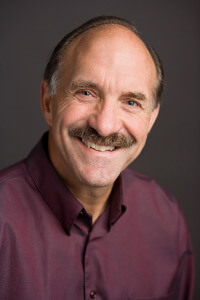
“This is the first time in U.S. history where the Supreme Court has actually ruled that gender rights now trump religious rights, which means this is the beginning of the possible coming harassment and persecution of the church because it’s going to be clear that the true church will take a stand only on the Word of God,” Engle, founder of TheCall prayer movement, said today. “So these campuses will find out who the real Christians are, who is willing to take a stand and risk their status with the school as a club.”
In its split decision, the court ruled in favor of the University of California’s Hastings College of the Law, which barred the Christian Legal Society (CLS) from recognition and funding because it would not accept members who were engaged in homosexual relationships. The ruling states that campus groups cannot bar any student who wishes to become a member or move into a leadership position, even if that person does not agree with the group’s beliefs.
“The Hastings policy actually requires CLS to allow atheists to lead its Bible studies and the College Democrats to accept the election of Republican officers in order for the groups to be recognized on campus,” said Gregory S. Baylor, an attorney with the Alliance Defense Fund who is representing CLS.
Writing for the majority, Justice Ruth Bader Ginsburg wrote that “Hastings, caught in the crossfire between a group’s desire to exclude and students’ demand for equal access, may reasonably draw a line in the sand permitting all organizations to express what they wish but no group to discriminate in membership.”
CLS says it welcomes all students to join its meetings and Bible studies, but requires voting members and leaders to sign a statement of faith that includes, among other beliefs, a line about “unrepentant participation in or advocacy of a sexually immoral lifestyle.”
Justice Samuel Alito, in a minority opinion, called the ruling “a serious setback for freedom of expression” and said he hoped the decision “will turn out to be an aberration.”
“The court arms public educational institutions with a handy weapon for suppressing the speech of unpopular groups,” Alito wrote. Conservative Justices Antonin Scalia and Clarence Thomas, and Chief Justice John Roberts joined his dissent.
Official recognition gives groups access to small grants, the college’s e-mail network and meeting rooms on school property. Now the Christian Legal Society will not have access to any of these things.
“This is an extremely disappointing decision that significantly damages the constitutional rights of religious organizations,” said Jay Sekulow, chief counsel of the American Center for Law and Justice, which filed an amicus brief on behalf of several groups, including the Fellowship of Christian Athletes, Campus Crusade for Christ and InterVarsity Christian Fellowship. “The majority of the Supreme Court missed the mark in understanding that it is fundamental to religious freedom that religious groups are free to define their own mission, select their own leaders and determine their own membership criteria.”
Baylor said the case is far from over and that his group is considering further litigation. “This decision doesn’t settle the core constitutional issue of whether nondiscrimination policies in general can force religious student groups to allow non-believers to lead their groups,” he said. “Long term, the decision puts other student groups across the country at risk, and we will continue to fight for their constitutional rights.”
CLS attorneys said they do not expect the ruling to have an immediate effect because it knows of no other college with Hastings’ “all-comers” policy, which bars campus groups from excluding students from membership or leadership for any reason.
David French, director of the Alliance Defense Fund’s Center for Academic Freedom, noted that the court did not rule on whether Hastings’ nondiscrimination policy trumped CLS’ right to free association. Instead, it determined that the all-comers policy was constitutional if it had been applied equally to all groups on campus.
That distinction opens the door for further litigation, he said. “Despite an unfavorable ruling on the all-comers policy, [CLS] can still prevail on remand if it proves that the university did not apply the policy to all student groups but instead specifically targeted CLS,” French wrote in a blog posting Monday. “We have powerful evidence that the university has, in fact, targeted CLS.”
Engle said his group is challenging students to begin campus prayer groups and stand against pressure to change Christian organizations’ statements of faith.
“We’re going to head into this thing and seek to raise up a standard of a radical stand for God, for truth,” Engle said. “We’re going to fuel prayer all the more. It’s going to be a great time for true Daniels to arise and get an opportunity to proclaim the word of Christ in the midst of this. I think the darkness is always is going to bring out the best in the light.”














































